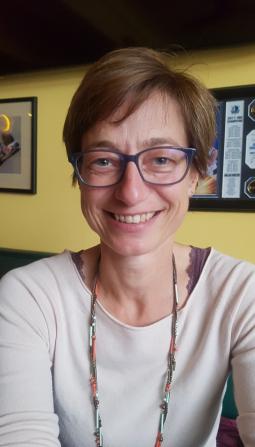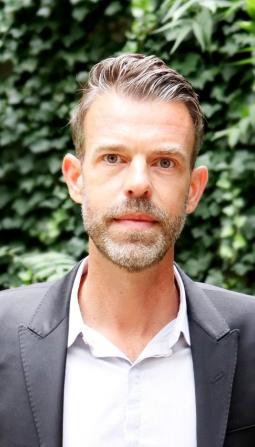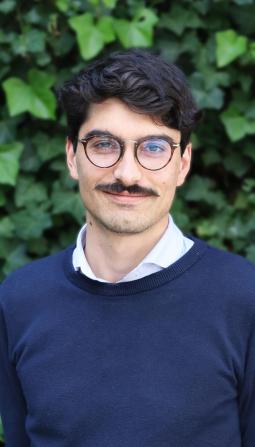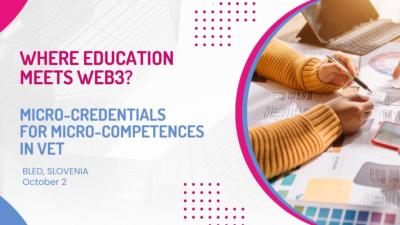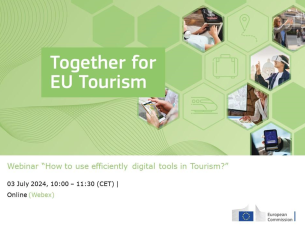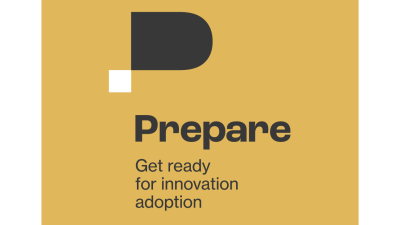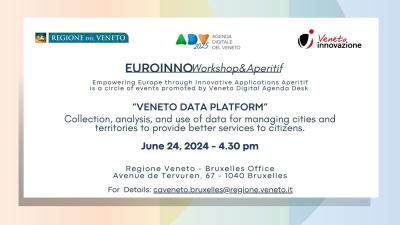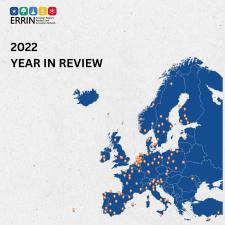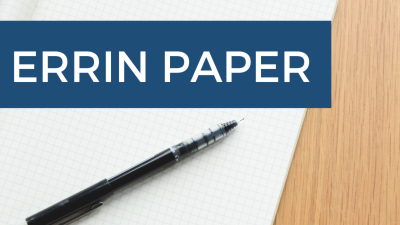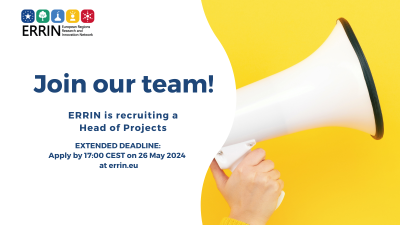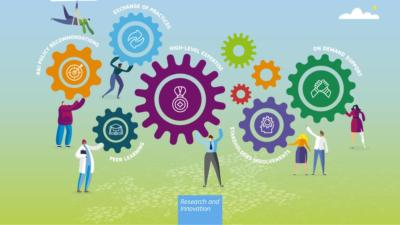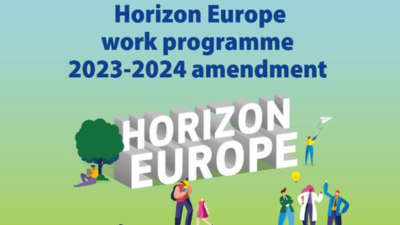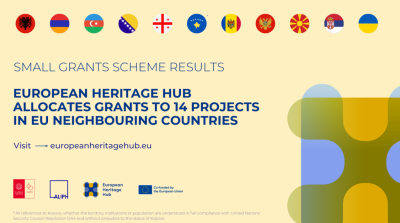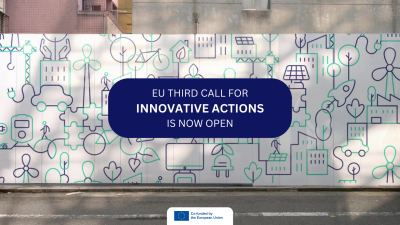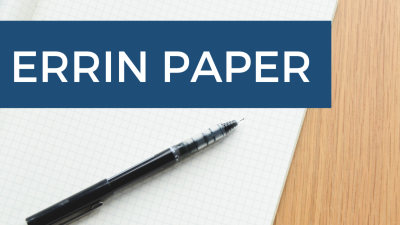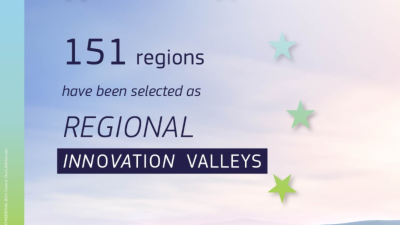Working Group Leaders
Representatives of Brussels-based offices leading the work of ICT Working Group.
ICT
The main objective of the ICT Work Group is to act as a platform to discuss and share information on ICTrelated initiatives and funding opportunities in relation to the European Commission’s policy priority “A Europe fit for the digital age”. Especially highlighting the regional dimension of the ICT-field, the WG aims to create opportunities for interregional cooperation in the field of ICT by linking with other areas and sectors such as smart cities, energy, transport, health or culture.
ERRIN Contact
Previous Related ERRIN Working Group Meetings

Artificial Intelligence related strategies at local and regional level – ICT WG Meeting
In December 2023, the Council and the European Parliament reached a political agreement on the AI Act, setting out rules for the development and usage of AI in Europe. With AI's growing importance
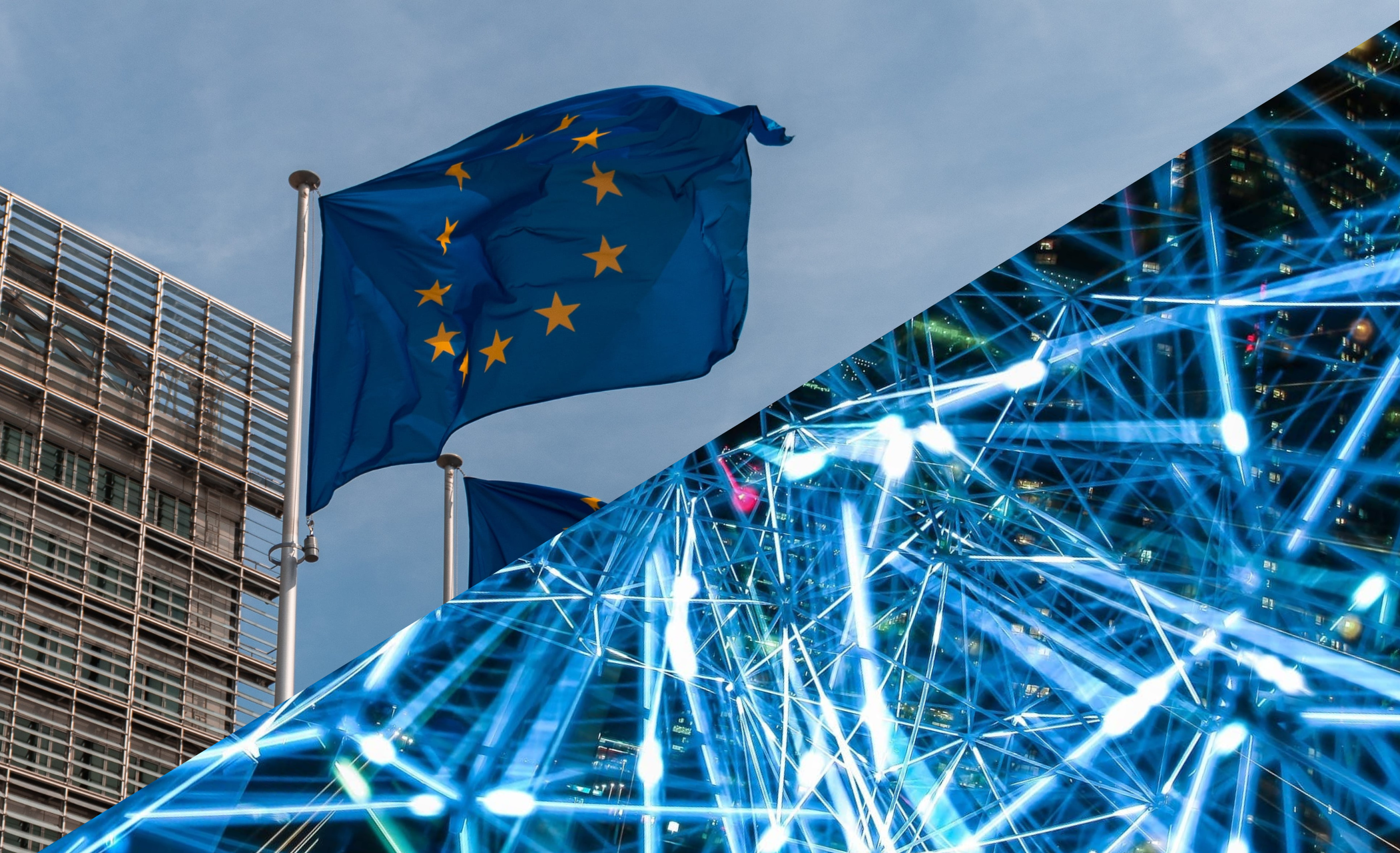
Policy & Smart Specialisation WGs meeting: Widening in FP10 and impact on cohesion policy post-2027
The topic of widening gathers high attention in the discussions around the next European Framework Programme for R&I, raising questions with the potential to influence not only the Widening sub-

The role of DIH in supporting public authorities’ digital transformation – ICT Working Group meeting
The European Digital Innovation Hubs (EDIHs) initiative is part of the Digital Europe Programme. EDIHs function as one-stop shops for the public and private sectors alike, enabling them to respond to
WG Related Events
EUREKA 2024: Fair of culture and creativity - Friuli Venezia Giulia
Eureka 2024 is designed for the enterprises that want to boost their competitiveness and for all the culture and innovation enthusiasts. Take your unique opportunity to meet the cultural and creative industry leaders and engage in two days of exposition, B2B meetings, workshops and conferences. The event will take place in Pordenone, on 29-30 October.
Where Education Meets Web3
The University of Ljubljana is organizing an event entitled "Where Education Meets Web3". The event will focus on the impact of Web3 technology on quality assurance in higher education. This event will take place in Bled, Slovenia, on 2 October 2024 09:00 - 17:00. scheduled for 2 October 2024 in Bled, Slovenia
"How to use efficiently digital tools in Tourism" - Together for EU Tourism
In today's rapidly evolving tourism landscape, the effective utilisation of digital tools is crucial for staying competitive. This webinar delves into essential strategies and innovative digital solutions that not only streamline operations and enhance customer engagement but also emphasise the importance of innovation and boldness in adopting new technologies. Register for the webinar to explore how embracing cutting-edge solutions can revolutionise your approach to tourism management and marketing. This event will take place online on 3 July, 10:00-11:30.
Workshop on regional policies to promote the adoption of innovation by public administrations
The EU project Prepare brings together four regions that are interacting with the local ecosystems to design novel policies that promote demand-driven co-creation for the benefit of local public services, SMEs and citizens. The aim is to help unlock the potential of innovation procurement to turn regional needs into opportunities. A workshop with thematic insights, resources and best practices will take place on 27 June from 9:00-12:30 in Brussels.
From Vision to Action: Co-Creating Rural Futures
The development and connectivity of rural areas, along with their interaction with urban regions, is a critical concern for Thuringia and many European regions. This event aims to initiate a co-design process in collaboration with like-minded European regions. You are invited to share your experiences, discuss, and contribute to the thematic topics of the World Café sessions: (1) Buildings as a Resource, (2) Mobility and Digitalisation, and (3) Community and Society. Your active participation and input, or that of your region, would be invaluable to this collaborative effort. This event will…
EuroINNOWorkshop&Aperitif - "Veneto Data Platform"
VENETO DATA PLATFORM - Collection, analysis, and use of data for managing cities and territories to provide better services to citizens. The event will take place in Brussels on 24 June, 16:30-19:00.
Pagination
WG Documents
ERRIN Year in review 2022
The ERRIN Year in review 2022 is out! Read the report to see the numerous activities ERRIN and its members have been involved in throughout the year.
European Digital Innovation Hubs in Digital Europe Programme
The draft working document for European Digital Hubs in the Digital Europe Programme.
WG Related Content
ERRIN two-page input on FP10 for the attention of the Expert Group
As the work towards the next EU Framework Programme for R&I (FP10) continues, ERRIN is pleased to share its two-page input for the attention of the Expert Group on the interim evaluation of Horizon Europe. The document is a concise compilation of the reflections on FP10 done at ERRIN so far, highlighting topics of key importance. Work on a series of broader input papers is underway.
H-ARPA project proposes a healthcare model that integrates technological solutions to improve access, continuity of care, early detection of complications, and the quality of care for people with chronic diseases in rural settings
Rural areas face significant healthcare challenges. An aging population, a shortage of professionals, and geographic dispersion make it difficult to provide adequate care for chronic diseases. This leads to health inequalities between rural and urban populations and negatively impacts socioeconomic development. The H-ARPA project proposes a healthcare model that integrates technological solutions to improve access, continuity of care, early detection of complications, and the quality of care for people with chronic diseases in rural settings. The project will be supported by local healthcare…
ERRIN is looking for a Head of projects - Extended Deadline
In view of the upcoming departure of ERRIN's current Director of projects, Ryan Titley, ERRIN is looking for a replacement to start in September 2024. The new colleague will work closely with the ERRIN Director on strategic planning, and lead the implementation and development of ERRIN's current and future project portfolio. Extended deadline: Applications are open until 26 May at 17.00 CEST.
Empowering Innovation: Overview of Public Engagement in Research & Innovation
DG RTD has recently released a thematic report titled "Overview of Public Engagement in Research & Innovation", which provides an introductory overview of Public Engagement in Research and Innovation in Europe. The document aims to inspire and help public actors and policymakers to promote and support public engagement.
AI for the Managing Authorities of policy intruments
The enormous set of data collected in the programming and management phases by MAs of Cohesion Policy and other policy instruments can be analysed and processed with the support of the new AI technologies to simplify beneficiaries’ access to funding opportunities, monitoring of projects and programme activities and results, orientation of public policies through predictive technologies.
Express your interest in the EU Missions and New European Bauhaus Calls 2024
The European Commission has launched new calls for proposals to support research and innovation for its five EU Missions and the New European Bauhaus (NEB). ERRIN encourages all members and their stakeholders to express interest in the EU Missions and NEB calls through the ERRIN Project Development Tool (PDT).
Pagination
Latest Updates
- By Francesca Pozzebon
European Heritage Hub announces grants to 14 heritage projects in EU neighbouring countries and calls for increased funding
The European Heritage Hub, a pilot project co-funded by the EU connecting heritage stakeholders across Europe, has selected 14 heritage projects across 11 EU neighbouring countries for its Small Grants Scheme (see annexe for the complete list of projects). Around 250,000 EUR has been allocated to the selected initiatives led by civil society organisations, distributed among small, medium, and large-scale grants. The Scheme is run by Europa Nostra, the Project Leader of the European Heritage Hub, in consultation with other members of the Hub consortium, and is co-funded by ALIPH Foundation.
- By Daniele Ruggiano
Third Call for Proposals EUI - Innovative Actions
The third EUI-Innovative Actions (EUI-IA) Call for Proposals is launched now and will close on 14 October 2024 at 14.00 CEST with an allocated indicative budget of EUR 90 million ERDF. Each project can receive up to a maximum of 5 million EUR ERDF co-financing and project implementation should take place within a maximum period of 3.5 years.
- By Francesca Pozzebon
S+T+ARTS Hungry Ecocities: Call for Artists in the Agri-food sector
Hungry EcoCities is launching the second call for artists dedicated to developing innovative prototypes for products and services within the agri-food sector that can enhance AI-enabled responsible innovation for a sustainable food chain. The project will feature up to 10 collaborative experiments between art and the agri-food industry, known as Paths to Progress Experiments (PPEs). The initiative aims to explore one of the most pressing challenges of our times: the need for a more healthy, sustainable, responsible, and affordable agri-food system for all enabled by AI.
- By Ewa Chomicz
ERRIN two-pager for European decision-makers
ERRIN is pleased to share a two-pager for the incoming European decision-makers, aiming to present the network and our value to the new MEPs, raising a voice for the importance of place-based R&I in the changing landscape. We encourage all ERRIN members to share the document with their MEPs to introduce ERRIN and the value of place-based R&I.
- By Ewa Chomicz
Over 70 ERRIN member regions announced as Regional Innovation Valleys
On 19 June, the Commission announced the 151 regions identified as Regional Innovation Valleys following the call for EoI and calls for proposals in 2023. 74 successful regions come from ERRIN members. RIVs will aim to strengthen the regional innovation ecosystems, bridge the innovation gap and improve Europe's overall innovation performance. New calls for proposals under Horizon Europe are expected in 2025.
- By Rodolphe Doité
AI for local and regional authorities – Survey for the Committee of the Regions stakeholders’ consultation
The ERRIN ICT WG wishes to collect ERRIN’s members’ needs, challenges and solutions related to Artificial intelligence in order to answer the CoR stakeholders' consultation, expected in September 2024.
